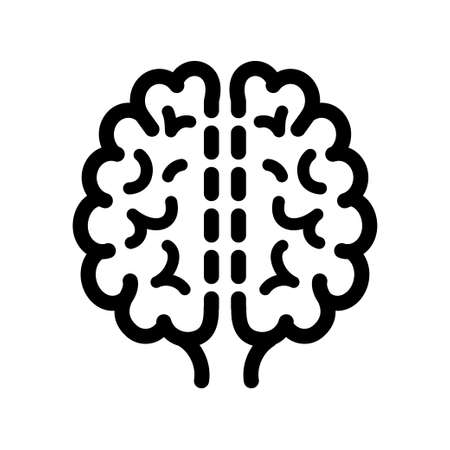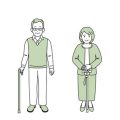Overview of Neurological Rehabilitation in the UK
Neurological rehabilitation plays a pivotal role within the UK’s healthcare system, offering specialised support to individuals affected by conditions such as stroke, traumatic brain injury, multiple sclerosis, Parkinson’s disease, and other neurological disorders. The primary aim of neurological rehabilitation is to maximise functional recovery, enhance quality of life, and promote independence for patients, whether care is delivered within NHS facilities, community settings, or private clinics.
This area of medicine brings together multidisciplinary teams – including physiotherapists, occupational therapists, speech and language therapists, psychologists, and specialist nurses – who collaborate to provide holistic and patient-centred care. In the UK, demand for neurological rehabilitation services has been steadily increasing; it is estimated that over one million people live with a neurological condition requiring ongoing support. With an ageing population and advances in acute medical care leading to higher survival rates after neurological events, the need for high-quality rehabilitation is more significant than ever.
Recent NHS data indicates that timely access to structured neurorehabilitation can reduce hospital stays by up to 40% and significantly improve long-term outcomes. As such, neurological rehabilitation is recognised as a vital component in both acute recovery phases and longer-term community reintegration. With ongoing innovations in treatment methods and service delivery models, the UK continues to strive for excellence in supporting individuals on their journey towards regaining independence and enhancing well-being.
Types of Neurological Conditions and Rehabilitation Needs
Neurological rehabilitation in the UK addresses a wide spectrum of conditions, each presenting unique challenges and requiring tailored approaches. The most prevalent neurological disorders include stroke, multiple sclerosis (MS), Parkinson’s disease, and traumatic brain injury (TBI). Understanding these conditions and their specific rehabilitation needs is essential for effective patient-centred care.
Common Neurological Conditions in the UK
| Condition | Key Features | Rehabilitation Focus |
|---|---|---|
| Stroke | Sudden loss of brain function due to interrupted blood supply | Mobility training, speech and language therapy, occupational therapy, psychological support |
| Multiple Sclerosis (MS) | Chronic autoimmune disorder affecting the central nervous system | Fatigue management, balance and coordination exercises, cognitive rehabilitation, symptom management |
| Parkinson’s Disease | Progressive movement disorder caused by dopamine deficiency | Gait and posture improvement, tremor management, speech therapy, daily living skills enhancement |
| Traumatic Brain Injury (TBI) | Physical damage to the brain from external force or trauma | Cognitive retraining, motor skills development, behavioural therapy, community reintegration support |
Diversity in Rehabilitation Requirements
The rehabilitation journey varies significantly across different neurological conditions. For instance, stroke survivors may require intensive early intervention with a multidisciplinary team to maximise recovery in the initial months. In contrast, people with MS often benefit from ongoing support that adapts as symptoms fluctuate over time. Parkinson’s disease demands a holistic approach that addresses both motor and non-motor symptoms, helping individuals maintain independence for as long as possible. Those recovering from TBI face unique cognitive and behavioural challenges that necessitate personalised therapeutic strategies.
A Patient-Centred Approach
Effective neurological rehabilitation in the UK emphasises patient-centred care. By recognising the distinct needs associated with each condition, health professionals can develop bespoke treatment plans that not only address physical symptoms but also consider emotional wellbeing and social participation. This tailored approach ensures individuals receive the right support at the right time throughout their rehabilitation journey.

3. Structure of Neurological Rehabilitation Services in the NHS
The structure of neurological rehabilitation within the NHS is designed to ensure comprehensive, patient-centred support throughout the entire recovery journey. The integration of services allows for smooth transitions between different levels of care and ensures that each individual receives tailored interventions at every stage. Neurological rehabilitation services are delivered across several key settings:
Community Care
Community-based neurological rehabilitation is fundamental to supporting individuals as they reintegrate into daily life following a neurological event or diagnosis. Community teams often include physiotherapists, occupational therapists, speech and language therapists, psychologists, and specialist nurses who work collaboratively to deliver therapy at home or in local clinics. This approach fosters independence and helps patients regain function within their own environments.
Inpatient Services
For those requiring more intensive support, inpatient neurological rehabilitation units provide a structured environment where patients benefit from round-the-clock care and access to a broad spectrum of specialists. Inpatient services are typically offered in dedicated neurorehabilitation centres or within neurology wards in larger hospitals. These units focus on early intervention, complex needs management, and coordinated discharge planning to maximise outcomes.
Outpatient Clinics
Outpatient neurological rehabilitation clinics offer ongoing specialist support for individuals who no longer require hospitalisation but still need regular therapy or review. Patients may attend these clinics for physiotherapy sessions, occupational therapy, follow-up assessments, or specialist consultations with neurologists. Outpatient care ensures continuity of progress and addresses any emerging challenges as people continue their recovery journey.
Multi-Disciplinary Team Involvement
A hallmark of neurological rehabilitation in the UK is its multi-disciplinary team (MDT) approach. MDTs bring together professionals from diverse backgrounds—such as doctors, nurses, therapists, social workers, and psychologists—to develop personalised care plans that address each patient’s unique needs. Regular MDT meetings facilitate shared decision-making and seamless communication between all parties involved in a patient’s care.
A Seamless Pathway for Patients
This integrated structure allows the NHS to deliver holistic and flexible neurological rehabilitation services across England, Scotland, Wales, and Northern Ireland. It ensures that whether care is delivered at home, in hospital, or through outpatient support, patients benefit from coordinated expertise focused on maximising quality of life and promoting long-term recovery.
4. Innovative Approaches and Technologies in Rehabilitation
The landscape of neurological rehabilitation in the UK is rapidly evolving, with a strong emphasis on integrating cutting-edge technologies and innovative approaches to enhance patient outcomes. These advancements not only support patients unique needs but also address the growing demand for accessible, effective, and personalised care across diverse settings.
Robotics in Neurological Rehabilitation
Robotic-assisted therapy has gained significant traction within specialist centres throughout the UK. Robotic devices such as exoskeletons and robotic arms are used to facilitate repetitive, precise movements, which are crucial for neuroplasticity and motor recovery after stroke or traumatic brain injury. These devices offer objective feedback and can be tailored to each patients abilities, helping to maximise progress during rehabilitation sessions.
Virtual Reality (VR) for Enhanced Engagement
Virtual reality technologies provide immersive environments that motivate patients while offering safe, controlled scenarios for practising real-world tasks. VR is increasingly being adopted in both NHS and private settings for gait training, balance improvement, and cognitive exercises. The interactive nature of VR makes therapy more engaging and can be especially beneficial for younger patients or those requiring additional stimulation.
Tele-rehabilitation: Bridging Distances
Tele-rehabilitation has become an essential component of service delivery, particularly since the COVID-19 pandemic. Using secure video platforms and digital health tools, therapists can deliver assessment, treatment planning, and guided exercises remotely. This approach ensures continuity of care for individuals who may face mobility challenges or live in rural areas where access to specialist services is limited.
Comparison of Innovative Technologies in Neurological Rehabilitation
| Technology | Main Benefits | UK Implementation |
|---|---|---|
| Robotics | Objective feedback; high-intensity repetitive training; customisable support | Specialist NHS centres; leading private clinics |
| Virtual Reality (VR) | High engagement; safe simulation of daily tasks; adaptable programmes | NHS trials; university hospitals; community projects |
| Tele-rehabilitation | Remote access; flexible scheduling; reduced travel barriers | NHS Trusts; charities; home-based care initiatives |
| Personalised Therapy Programmes | Bespoke interventions; goal-oriented plans; integration of multidisciplinary input | Across NHS and private sector; supported by national guidelines |
Personalised Therapy Programmes: Tailoring Care to the Individual
The move towards personalised therapy reflects a broader shift within UK healthcare towards patient-centred practice. Rehabilitation teams develop bespoke programmes based on comprehensive assessments, patient goals, and evidence-based interventions. Multidisciplinary collaboration—often involving physiotherapists, occupational therapists, speech therapists, psychologists, and social workers—ensures that each aspect of recovery is addressed holistically.
The Future of Neurological Rehabilitation in the UK
The integration of these innovative approaches is transforming the rehabilitation journey for people living with neurological conditions across the UK. Continued investment in research, staff training, and technology adoption will further strengthen services—helping more patients regain independence and improve their quality of life.
5. Patient-Centred Care: Supporting Individuals and Families
One of the defining characteristics of neurological rehabilitation in the UK is its strong commitment to patient-centred care. This holistic approach ensures that each individual is seen as more than just their diagnosis, with treatment plans carefully tailored to meet unique needs, preferences, and life circumstances. The NHS and many private providers place great emphasis on involving patients in decision-making processes, enabling them to take an active role in shaping their own rehabilitation journey.
Holistic Support Beyond Physical Recovery
Rehabilitation programmes in the UK recognise that neurological conditions affect more than just physical function. Emotional wellbeing, cognitive health, and social participation are all integral components of recovery. Psychological support—such as counselling, cognitive behavioural therapy (CBT), and peer support groups—is routinely offered to help individuals adjust to changes, manage anxiety or depression, and build resilience for daily challenges.
Education and Empowerment
Patient education is another cornerstone of UK neurological rehabilitation. By providing clear information about conditions, treatment options, and self-management strategies, healthcare professionals empower patients to make informed choices. Workshops, written resources, and digital tools are widely used to enhance understanding and confidence throughout the rehabilitation process.
The Vital Role of Carers and Family
Families and carers are recognised as essential partners in care. They often participate in goal-setting sessions, therapy reviews, and training programmes designed to equip them with skills for supporting loved ones at home. Carer support services—ranging from respite care to emotional counselling—are available across the UK, acknowledging both the challenges and the invaluable contribution of informal carers. By fostering open communication between multidisciplinary teams, patients, and families, UK services strive to create a supportive environment that nurtures long-term recovery and well-being.
6. Accessing Neurological Rehabilitation: Pathways and Challenges
Referral Pathways and Eligibility in the UK
Accessing neurological rehabilitation in the UK generally begins with a referral from a GP, consultant, or other healthcare professional following a diagnosis of a neurological condition. Patients may be referred to specialist NHS services such as community neurorehabilitation teams, inpatient units, or outpatient clinics depending on their needs and severity of symptoms. Eligibility for NHS-funded rehabilitation is typically determined by clinical need, functional goals, and potential for improvement, assessed by multidisciplinary teams. For those seeking private sector options, self-referral or direct referral from healthcare professionals is common, offering more flexibility but often at significant personal cost.
Funding Through the NHS and Private Sector
The majority of neurological rehabilitation services in the UK are funded by the NHS, ensuring that patients can access evidence-based care without direct charges. However, waiting times can vary considerably based on local demand and resources. Some individuals opt for private rehabilitation to bypass waiting lists or access services not available locally. Funding for private care may be covered by health insurance policies or paid out-of-pocket. Charitable organisations also play a role in supporting access to specialised equipment or therapies, particularly for long-term conditions.
Current Challenges in Access
Despite comprehensive frameworks, patients face several barriers to accessing timely and effective rehabilitation. These include regional disparities in service provision, lengthy waiting times for assessment or therapy initiation, and limited availability of specialist staff. For some conditions and rural areas, services may be sparse or require extensive travel. Navigating eligibility criteria and funding processes can also be complex for patients and families.
Strategies to Improve Access Across the UK
To address these challenges, ongoing efforts focus on increasing investment in community-based services, expanding tele-rehabilitation platforms, and standardising referral pathways across regions. Enhanced training for frontline professionals aims to improve early identification of rehabilitation needs. Collaboration between NHS providers, private practitioners, charities, and patient advocacy groups continues to drive innovation and reduce inequalities in access to high-quality neurological rehabilitation throughout the UK.

